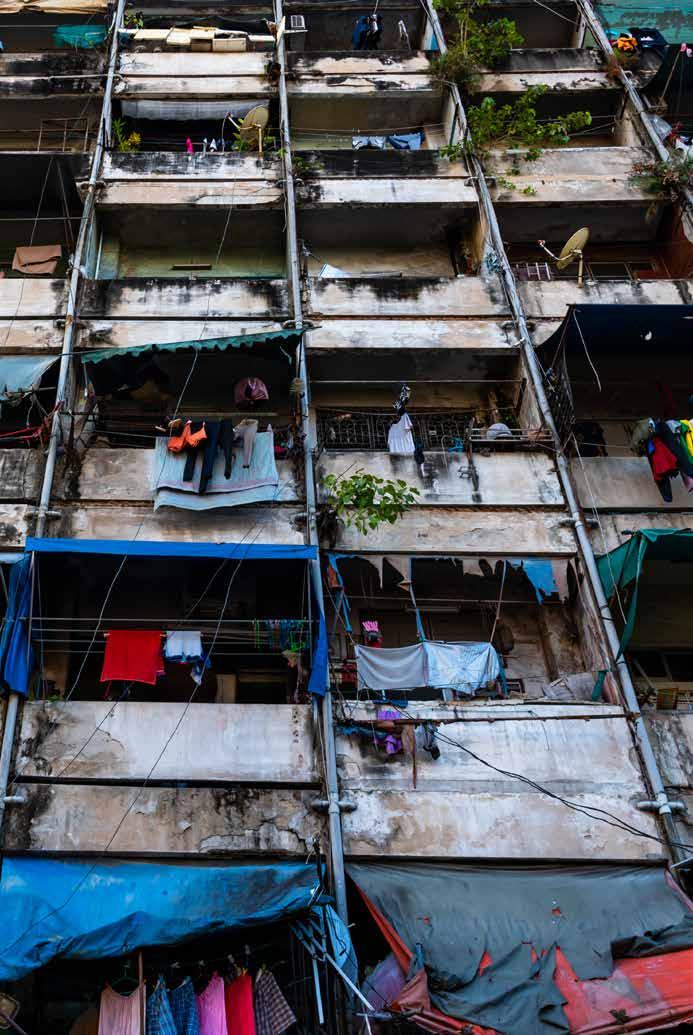
2 minute read
1 | Introduction
1INTRODUCTION
169169 – stock.adobe.com
Advertisement
Informality is a complex topic with a long history.
Five decades ago, a study in Ghana resulted in the first comprehensive discussion on informality in a development context.1 Hart coined the term informal economy that became an important concept to describe national economies in the developing world.2 The idea of informality has been used in different knowledge domains and discourses. Several have made important contributions to improving our understanding of the Global South’s urbanization processes: informal economy, informal housing, informal land markets, informal law, and informal institutions.
This paper is part of a larger review series on informality launched by Cities Alliance. Since its creation in 1999, this multi-institutional platform has been at the forefront of the debate on slums, slum upgrading, and the role of informality in cities of the Global South. Cities Alliance has recently launched the Global Program on Informality. The overall aim is to fundamentally alter how knowledge is created and shared on informal settlements and related topics. One of its objectives is to build a coalition to globally overcome the political and geographic as well as knowledge- and resource-related gaps for addressing the issue of informality in housing, land, economy, and citizenship at scale, on a permanent basis.
The “Practice Review of Informality” is embedded in the Global Program on Informality and proposes a new take on cross-sectoral knowledge sharing. Each paper addresses an important topic of informality by reviewing the literature produced by Cities Alliance, its members, and other important knowledge stakeholders whenever needed. Developed in close collaboration with the restructuring of the knowledge library, several elements have been developed to enable better access and more targeted impact. The paper and its content have been tagged to unlock the potential of text-based online searches to make the content more accessible.
Our world is changing at an unprecedented pace.
This also imposes new demands on knowledge creation. The authors of this paper perceive the paper as a current snapshot of the practitioner’s knowledge on the given topic. We encourage the readers to get in touch with us for further suggestions and comments. This feedback is very valuable to us and may include, among others, specific references to new projects and case studies, missing concerns, and proposals for future review topics. Interested parties can also sign up for the mailing list of the Global Programme on Informality. The papers shall be updated regularly (traceable in the version index) to keep pace with the evolving knowledge of the Global Community of Practice.
by Anthony Boanada-Fuchs, Vanessa Boanada Fuchs, Anaclaudia Rossbach and Susana Rojas Williams







